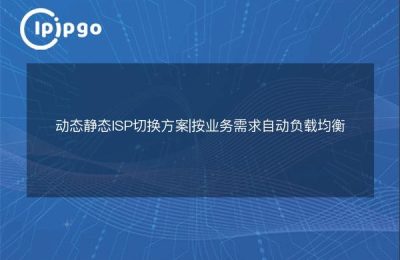
In the network world, static proxy IPs are like a fixed address that provides users with a stable and reliable network connection. They not only protect the user's privacy, but also improve the efficiency of network access. So, what exactly are the types of static proxy IPs? Today, let's find out.
What is a static proxy IP?
A static proxy IP, as the name suggests, is a fixed IP address. Unlike a dynamic proxy IP, a static proxy IP stays the same for a period of time, and users can use this IP address steadily for network activities during this period. It's like you have a fixed address in the city, no matter when and where, people can always find you through this address.
Data Center Proxy IP
Data Center Proxy IPs are one of the most common types of static proxy IPs. These IP addresses are usually provided by large data centers with high stability and availability. The advantage of Data Center Proxy IPs is that they are efficient and cost-effective, making them suitable for large-scale data crawling and automation tasks.
However, data center proxy IPs have their shortcomings. Since these IP addresses are usually assigned in bulk, they can easily be recognized as proxies by target websites, resulting in restricted access. Therefore, when using data center proxy IPs, special attention needs to be paid to their usage scenarios and frequency.
Residential Proxy IP
Residential Proxy IP is another common type of static proxy IP. Unlike data center proxy IPs, residential proxy IPs originate from real home networks. This means that these IP addresses are more real and less likely to be detected as proxies by targeted websites.
The advantages of residential proxy IPs are their high anonymity and low risk of being blocked, making them ideal for tasks that require a high level of privacy protection. However, because residential proxy IPs are more expensive to acquire, they are also usually more expensive.
ISP Proxy IP
ISP Proxy IPs are IP addresses assigned directly by Internet Service Providers (ISPs). This type of proxy IP combines the advantages of both data center proxies and residential proxies, providing a high degree of stability while being less likely to be detected as a proxy.
ISP proxy IPs are well suited for tasks that require a long and stable connection, such as video streaming viewing and online gaming. However, because they are more difficult to obtain, they are also relatively expensive.
Static proxy IP selection
Choosing the right type of static proxy IP needs to be evaluated based on specific usage scenarios and needs. If you need to perform large-scale data crawling, a data center proxy IP may be a good choice; while if you need a high degree of privacy protection, a residential proxy IP is more appropriate.
In addition, the reputation and service quality of the proxy service provider should also be considered. A reliable service provider can not only provide high-quality proxy IP, but also ensure good after-sales service.
concluding remarks
Static Proxy IP is an indispensable and invisible guardian in the network world. By understanding the different types of static proxy IPs and their advantages and disadvantages, you can better choose the proxy service that suits your needs and improve the efficiency and security of your network access. In this age of information explosion, mastering the knowledge of static proxy IP can make you more comfortable in the network world.








